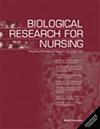A Systematic Review and Meta-analysis of Randomized Controlled Trials of Stabilizing Exercises for Lumbopelvic Region Impact in Postpartum Women With Low Back and Pelvic Pain
IF 2.1
4区 医学
Q2 NURSING
引用次数: 0
Abstract
Background Countless women experience lumbopelvic pain (LBPP) after pregnancy. Physical activity is revealed as a beneficial procedure to alleviate LBPP, yet it appears that individual investigations report mixed conclusions about its effectiveness. Objective: This systematic review and meta-analysis examined the impact of stabilizing exercises on pain intensity, disability, and quality of life (QoL) in postpartum women. Data sources: A systematic search was conducted in PubMed, MEDLINE, Google Scholar, Scopus, and reference lists of included studies up to September, 2021. Study selection: Eleven studies comprising 623 participants were included and analyzed using a random-effects model. Results: Data displayed that stabilizing exercises significantly reduced pain (standard mean difference; SMD: −0.76, 95% confidence interval (CI): −1.26 to −0.27, p = .002), and disability (SMD: −1.19, 95% CI: −1.7 to −0.68, p < .001). However, our study found no significant change in QoL following stabilizing exercises (MD: 4.42, 95% CI: −5.73, 14.57, p = .39). Conclusion: Our systematic review and meta-analysis demonstrated that stabilizing interventions had some benefits in postpartum women. While there is some evidence to display the efficacy of stabilizing exercises for relieving LBPP, additional longer-term and high-quality studies are required to confirm the current findings.一项针对产后腰盆腔疼痛妇女腰盆腔稳定运动影响的随机对照试验的系统回顾和荟萃分析
无数妇女在怀孕后经历腰盂痛(LBPP)。体育活动被认为是缓解LBPP的有益方法,但似乎个别调查报告了关于其有效性的不同结论。目的:本系统综述和荟萃分析探讨了稳定运动对产后妇女疼痛强度、残疾和生活质量(QoL)的影响。数据来源:系统检索PubMed, MEDLINE,谷歌Scholar, Scopus和截至2021年9月的纳入研究的参考文献列表。研究选择:纳入11项研究,包括623名参与者,并使用随机效应模型进行分析。结果:数据显示,稳定运动显著减轻疼痛(标准均差;SMD:−0.76,95%可信区间(CI):−1.26 ~−0.27,p = 0.002)和残疾(SMD:−1.19,95% CI:−1.7 ~−0.68,p < 0.001)。然而,我们的研究发现,稳定运动后的生活质量没有显著变化(MD: 4.42, 95% CI: - 5.73, 14.57, p = 0.39)。结论:我们的系统回顾和荟萃分析表明,稳定干预措施对产后妇女有一定的益处。虽然有一些证据表明稳定运动对缓解LBPP的有效性,但需要更多的长期和高质量的研究来证实目前的发现。
本文章由计算机程序翻译,如有差异,请以英文原文为准。
求助全文
约1分钟内获得全文
求助全文
来源期刊
CiteScore
5.10
自引率
4.00%
发文量
58
审稿时长
>12 weeks
期刊介绍:
Biological Research For Nursing (BRN) is a peer-reviewed quarterly journal that helps nurse researchers, educators, and practitioners integrate information from many basic disciplines; biology, physiology, chemistry, health policy, business, engineering, education, communication and the social sciences into nursing research, theory and clinical practice. This journal is a member of the Committee on Publication Ethics (COPE)

 求助内容:
求助内容: 应助结果提醒方式:
应助结果提醒方式:


